REVIEW(S) | Kubo and The Two Strings
(EDITOR'S NOTE: This review is a two-part publication, written by Cinemaker Blog contributor Jake Sanders and Community Coordinator Spencer Mirabal respectively.) JAKE'S TAKE
Laika Studios is one of the best film studios out there, let alone animation studios. Their consistent attention to detail, quality of execution, and fluidity of vision is what makes them stand out. Coraline is one of my top favorite films of all time, as its folklore and simplistic story are shown through a beautifully tense and atmospheric approach. Paranorman and Boxtrolls, albeit substantially more tame, fall into this same category.
With their newest addition to their catalogue Kubo and the Two Strings, they add yet another impressive animation film to their overwhelming successful filmography, despite being their most flawed to date.
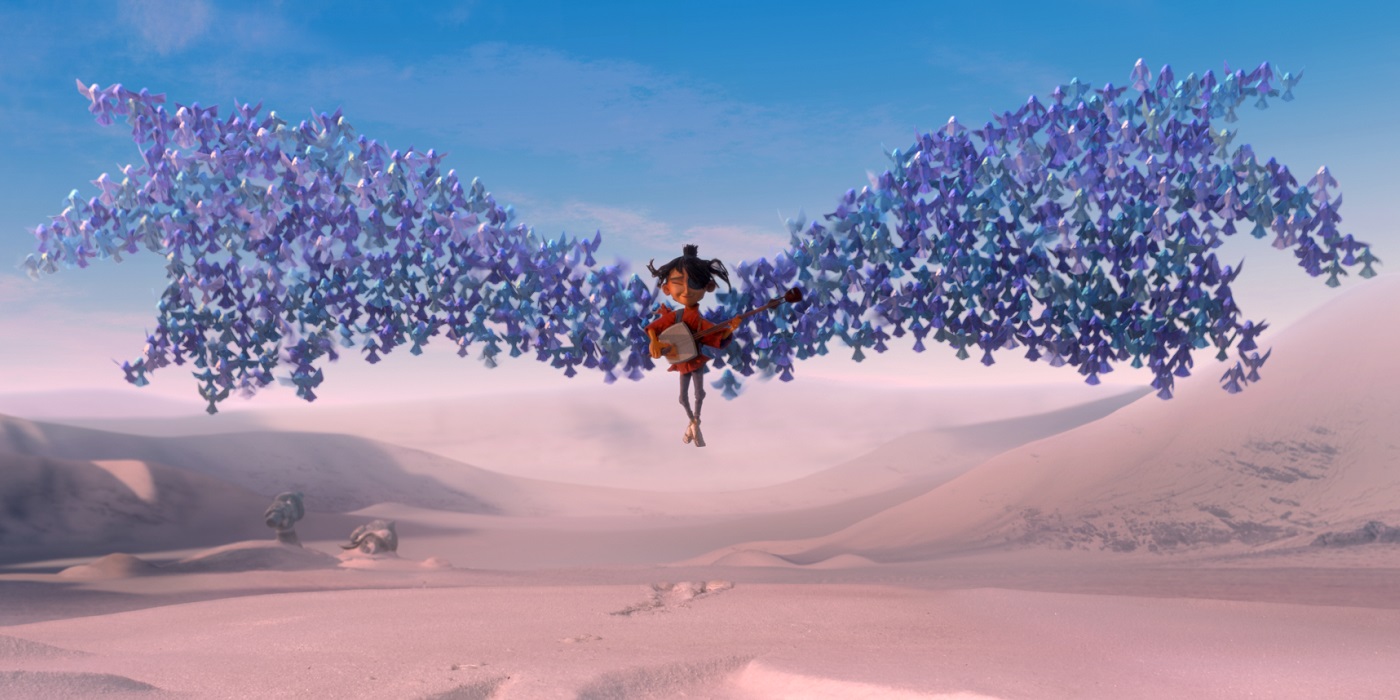
On a technical level, this is their best. It is beautiful. One of the most visually stunning films I have ever seen.
Director Travis Knight, who has been a member of the Laika artistic team for their past films, creates one of the most ethereal films I've ever seen. The visuals alone put this film on a higher pedestal than most live-action films in existence. The animation is beyond fluid, as well. I constantly forgot that this was stop motion, which is one of the best compliments that stop motion can ever receive. When the animation is as immersive as their work, it sucks you in and doesn't detract, nor remind you that you are just watching another animation film.
The film also excels in the fantastic performances from the various voice-actors, a list that includes the likes of Ralph Fiennes, Charlize Theron, Matthew McConaughey, and standout Art Parkinson as Kubo. Overall, the atmosphere and visuals of this film are incredible, but the performances definitely help promote this.
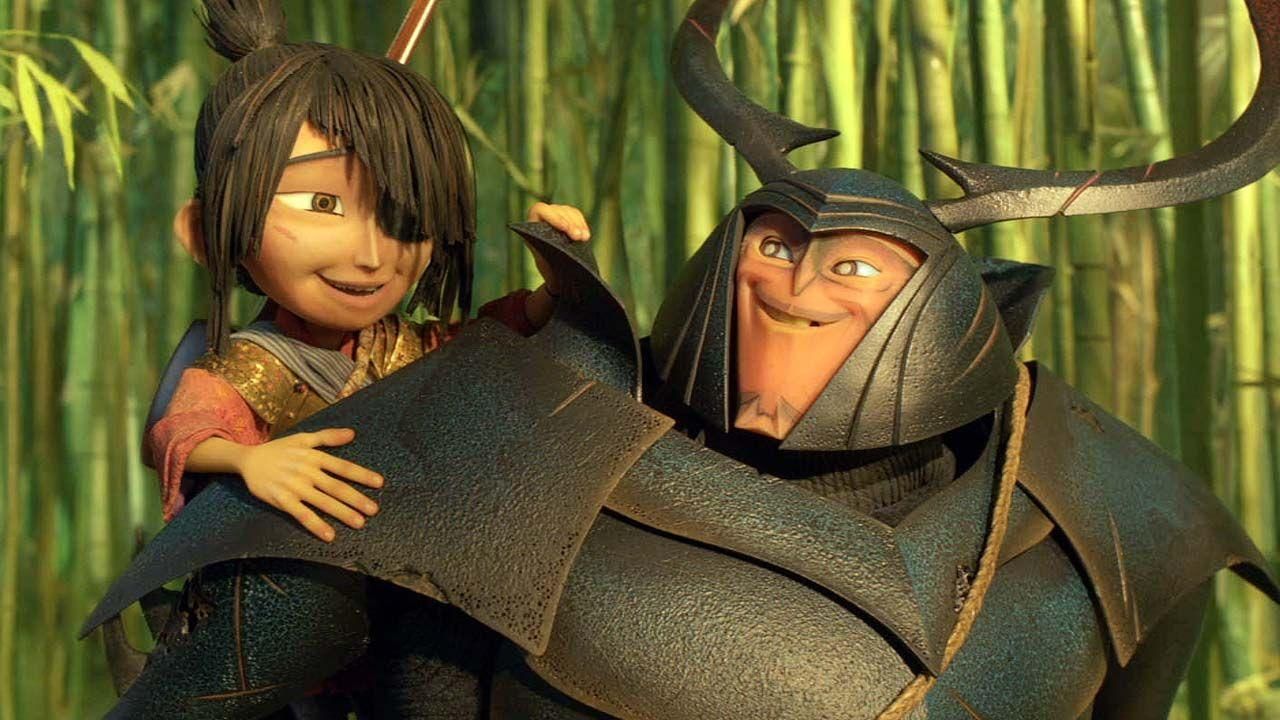
The weakest issues with this film fall to the story. People so quickly jump to the conclusion that story issues in kids films are negligible because they are "just kids films," and therefore, should receive a pass. And yet, studios like Laika and Pixar and Disney Animation Studios have been consistently elevating the medium to tell truly amazing stories. So this excuse is false. Kids films have been steadily evolving to not just be mindless fodder for your children - they can have emotions; they can have character arcs; they can have morality evaluations; they can be better.
Laika approaches this story in the traditional sense of the Hero's Journey (see Joseph Campbell's analysis of the Hero's Journey for more on this), with a blend of Miyazaki-esque classical Japanese animation storytelling. Which is intriguing, on paper and in theory, for an American animation film. So technically, Kubo has everything in motion to tell a stunning story.
The issue comes with some of the basic "Hero's Journey" plot beats, and how they're told. Kubo the character is flawless. Not in a good way. He has no flaws. He is told what his quest must be, but through this quest, he has nothing to change within himself. There is no character change, because there was nothing to be changed at the start.
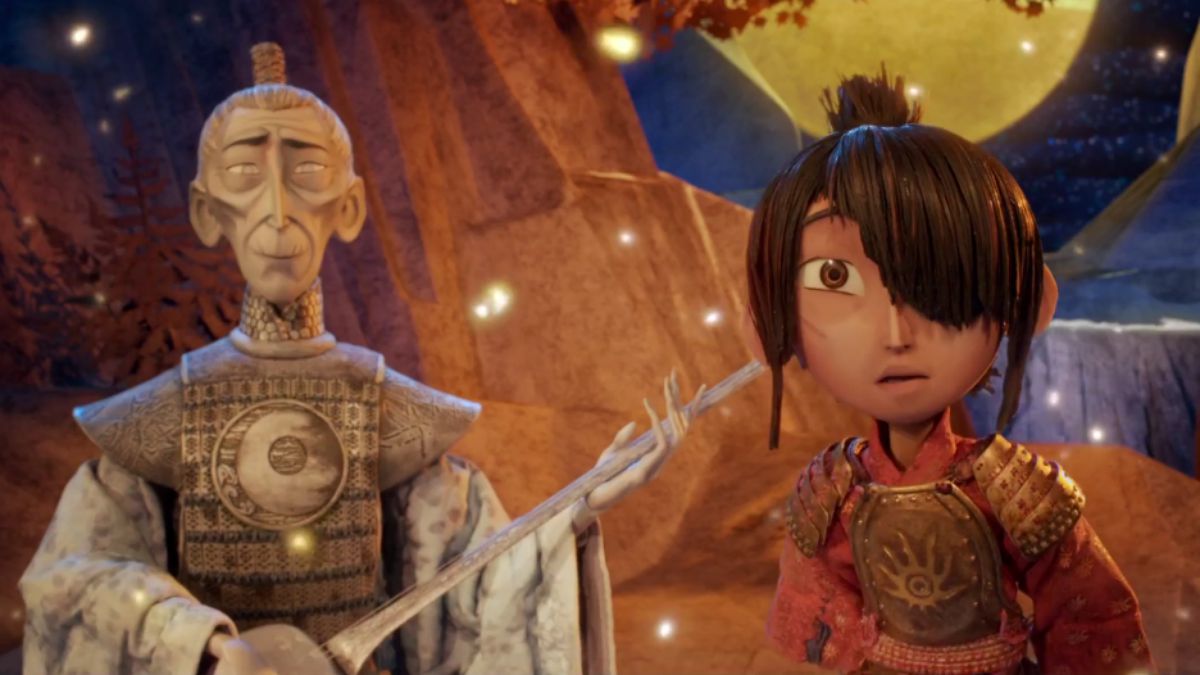
And this becomes a notable domino-like effect with the rest of the film. He is the hero because we are told that he is the hero, rather than shown. We are also told that the villain is the villain, rather than shown. Everything in the film is, for some reason, spelled out for us or just blatantly told to us, rather than shown. It's a basic storytelling element that comes off as a serious detriment to this otherwise gorgeous film. It leaves little discovery for us, and it hurts.
I suppose nothing is inherently wrong with this, but it comes off as... ugh, I hate saying this because I sound like a cynical adult who has forgotten how to be a kid, but it comes off as lazy. Which obviously Laika is not. They are some of best artists working in the industry, and hot damn does it show. But because of their incredible track-record, I hold them to a higher degree, and I expect nothing but the best from them, all the way across the board. I hold this same pedigree of judgment for Pixar and Disney.
They will all, undoubtedly, have their missteps. Maybe this is Laika's, which hurts me as an ardent fan, but I do look forward to whatever comes next.
GRADE: C+
SPENCER'S TAKE
Atmosphere is almost often an under appreciated aspect of discussion when it comes to appreciating animated films. We are always quick to comment on how beautiful an animated film is, or how far technology has come in terms of setting the bar of excellence in the medium of animation, without really saying what about the particular style of the animation on display is doing for the story it is telling. And because of this, when we talk about why we thought particular animated films are "beautiful" or "stunning" to look at, we don't really know what to say about why that is. It's all subjective; beauty is first and foremost always subjective, much like anything in terms of art.
See, people mistake this for enjoying some films; this is a firm belief that I have because I saw it in practice within myself in the case of Kubo and the Two Strings, Laika Studios' fourth feature length stop motion film. Of course it's beautiful: arguably, it's one of the most meticulously crafted and stupidly gorgeous pieces of animation ever. Does that save it from it's short comings in terms of it's story and characters? Debatably, no. It doesn't. But in the most one-sided, subjective and narcissistically pushed upon agenda is concerned, it's enough to make it enjoyable and good. Kubo is a good movie, even though it's story is not good. We'll come back to this momentarily.
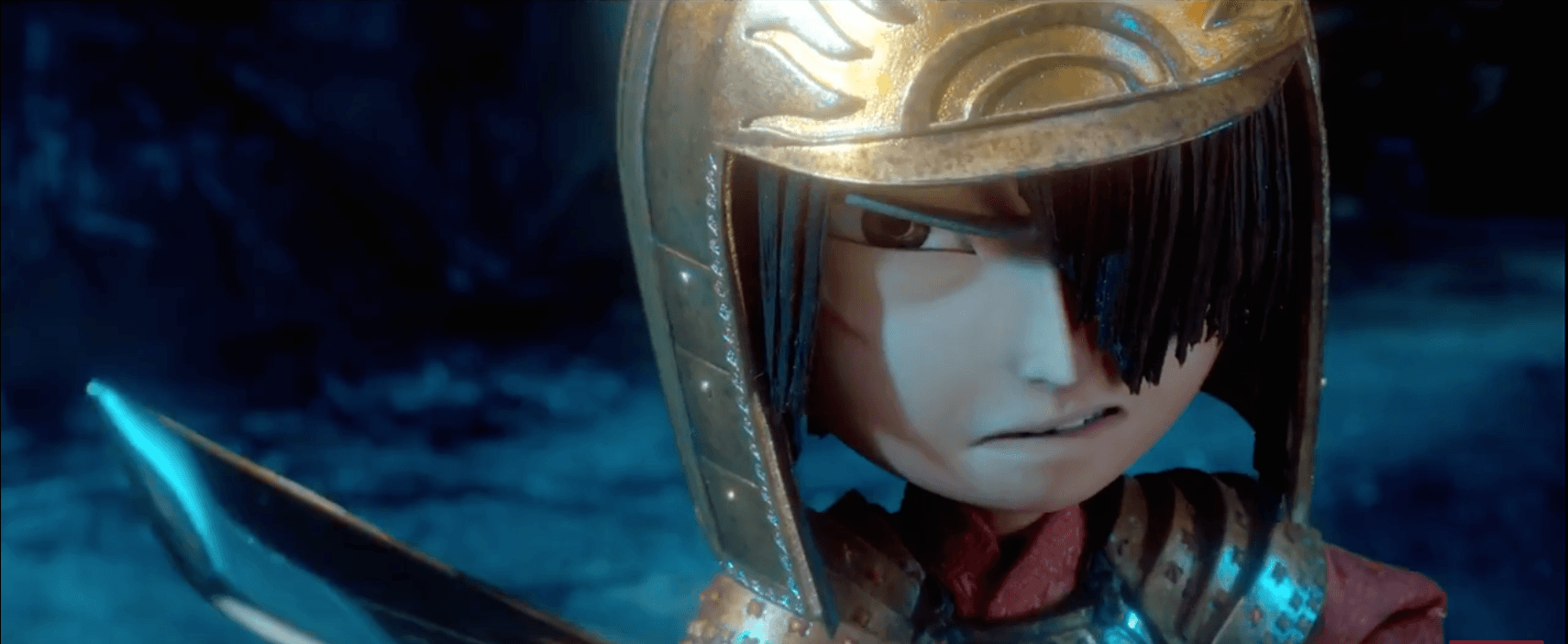
Without giving too much away, let's get the bad stuff out of the way: the lack of purpose for anything the people do in this movie is exhausting and annoying. After a mysterious, predominately world-building focused opening few scenes (which draw you in nicely), our main character is thrown into his adventure: collect armor and weaponry, in both a physical and emotional sense, in hopes of combating and defeating the fable's designated villain.
You know. Hero's Journey shit.
The problem with this is not really the principles or unoriginality of the quest, but more of the execution of it's beat points. Kubo doesn't have an emotional weakness to overcome, so that when he defeats obstacles, it's either because of dumb luck, his side character's will power, or sometimes even because....because! This small, but mighty problem could have been simply fixed by giving Kubo a weakness. Fear of failure comes to mind: What if Kubo was too overwhelmed and frightened to fight evil, thus making everyone around him pull the weight of the fight and putting their lives in jeopardy, and the blame on Kubo. That would make him have to overcome that fear, or in better terms responsibility, making the climax of this story (and in fact EVERYTHING ELSE THAT HAPPENS) that much more meaningful! But sadly, that doesn't happen. And everything that is done feels wooden and empty because of this. Which is disappointing, because the atmosphere and mystery of the opening sequences begs you to believe that something really overwhelming epic is about to be thrown on this boy, and we're excited to see him mature. The key word in that is see. We don't SEE any of that: we're TOLD that he overcomes something in order to succeed. When I find out what that is, I'll let you know.
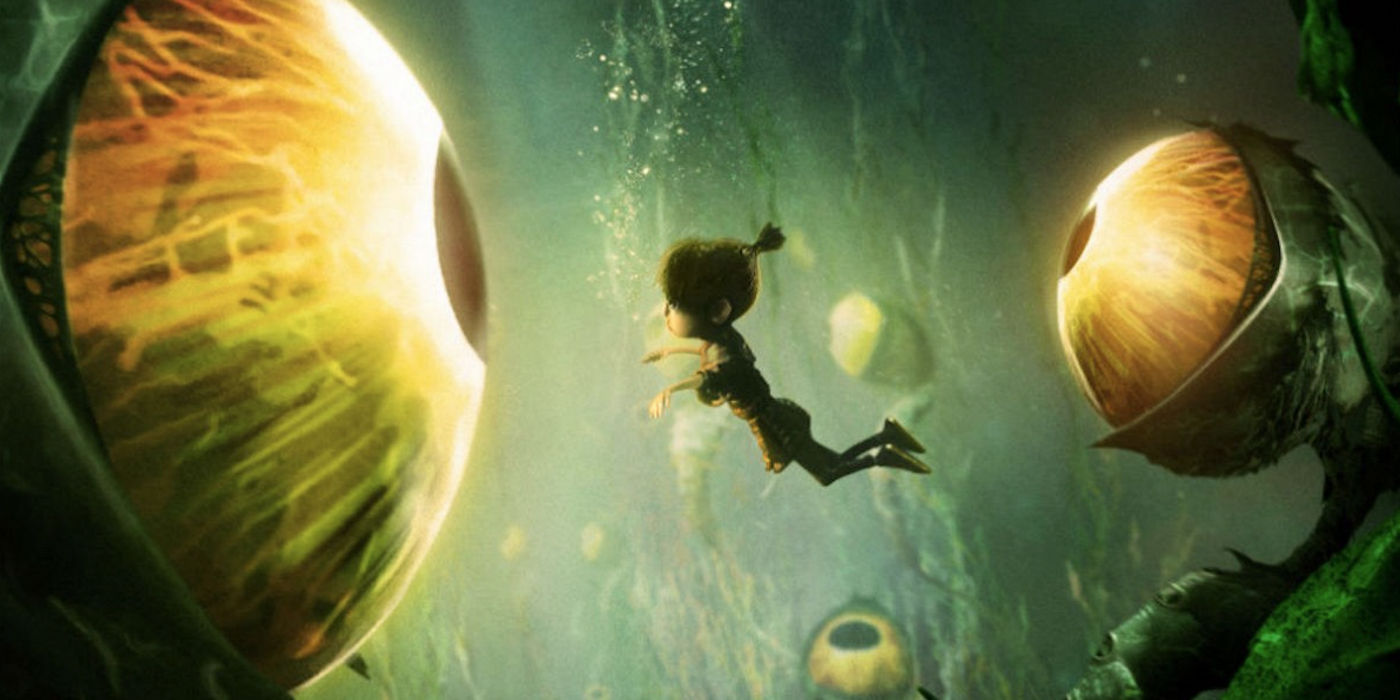
With ALL that negativity and "what ifs" being said, this movie is still pretty dang enjoyable. Remember when I talked about subjective enjoyment of atmosphere? How sometimes you can like something just for the aesthetic? This is one of those things. Kubo and the Two Strings just oozes with that an Eastern-influenced aesthetic that is just so compelling to me. The colors, the costumes, the detail in autumn leaves that at one point are magically weaved together to create a boat (It's a kids fable. Come on.): it's breathtaking to experience. Remind yourself that film is first and foremost a visual and auditorial experience, that also has a story of things happening. Just like the reason some people go nuts over certain TV Shows, video games, trading card games, this film can be enjoyed solely for the visual experience, and how that visual experience makes us feel. It's an intangible. An intangible that is most likely unexplainable. An intangible that you shouldn't feel shame over feeling when you defend your enjoyment. Do you think people lose their minds in loving The Rocky Horror Picture Show because the story was great? No. Arguably, that film is a disaster of a script with no true explanation for any character motivation or anything. But if in the first 5 minutes the aesthetic grabs you? You're hooked. Can't explain it: You just are compelled to enjoy it.
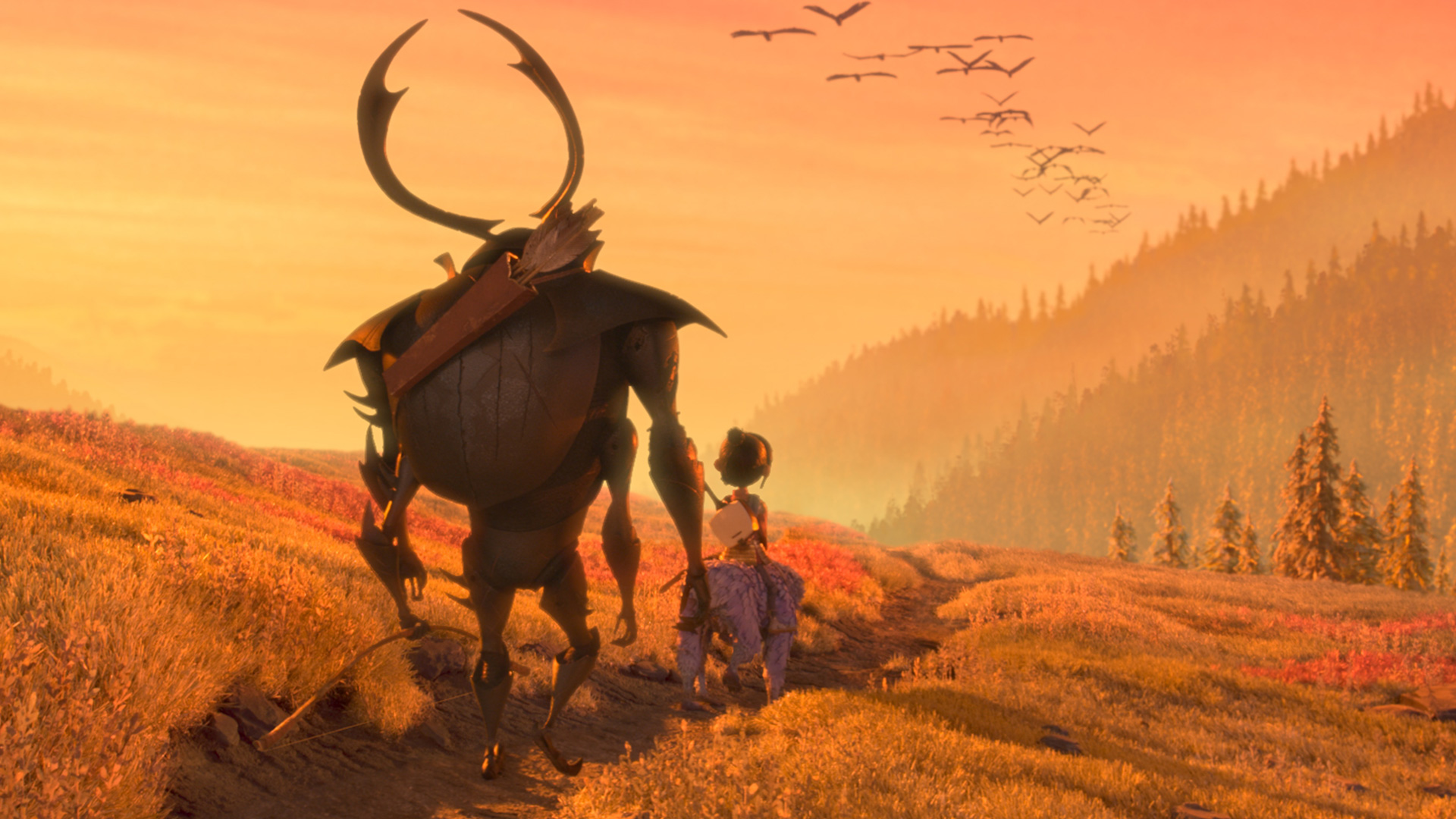
The same goes for Kubo and the Two Strings. It's not breaking barriers in terms of thematic content, and probably will be considered middle-of-the-road in the rest of Laika's body of work when it's all said and done, but it's entertaining, and gorgeous, and has a few scattered touching moments throughout. The word good is such a gray word in criticism these days, and I like to think of this film as sometimes good, sometimes disappointing, but mostly good. It's chess pieces' soul could've used a little more carving and definition, but don't let that deter you from seeing it or maybe enjoying it's captivating world
In Twitter Terms: Beautiful animation and environments. Pretty forgettable characters and plot. I cried twice. 3-D glasses still suck for people who wear real glasses. #good #Kubo #leafboat
(And yes. For those of you who checked, that is 31 characters over the Twitter limit. IDC.)
GRADE: B-

